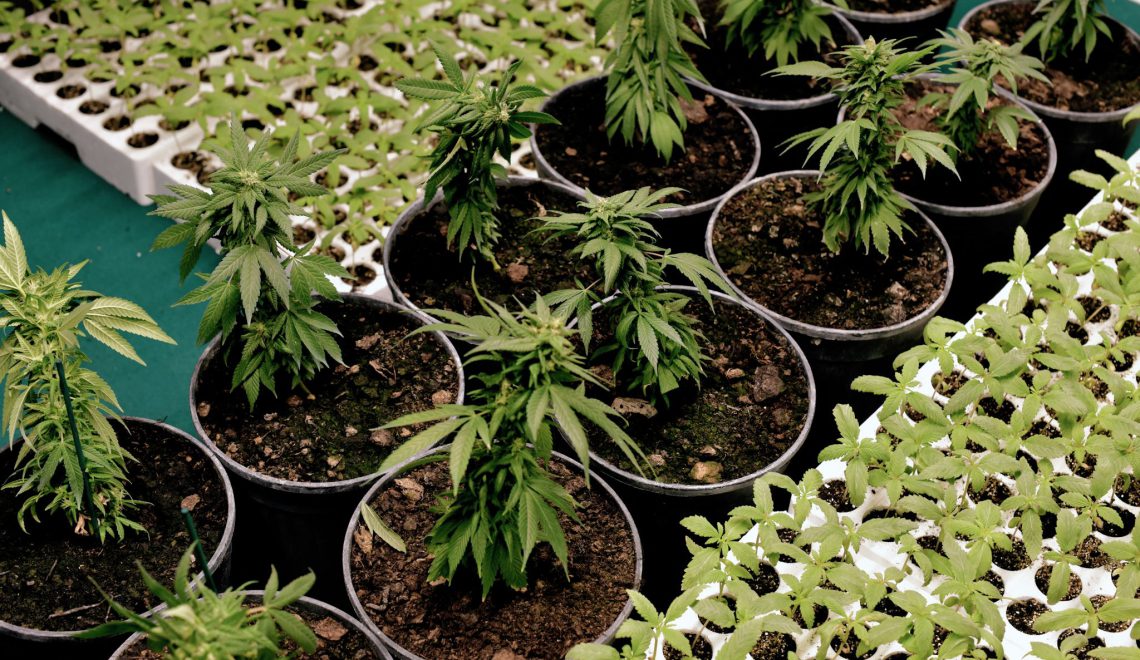An Industry Perspective on Delta-8 THC Production in the USA: Challenges and Opportunities Ahead.

The hemp and cannabis industry is increasingly focusing on delta-8 THC production due to the product’s higher potency and psychoactive effects compared to CBD. Delta-8 THC products are gaining popularity due to their potential health benefits such as pain relief, anxiety reduction, anti-inflammatory properties, and mild psychoactive effects. As a result, the market for delta-8 THC products is projected to reach $10 billion by 2025.
However, producing delta-8 THC is not without its challenges. This article aims to explore the process of producing delta-8 THC, including the chemistry involved and the challenges and opportunities that come with it.
Understanding Delta-8 Chemistry
Delta-8 THC is a minor cannabinoid found naturally in cannabis and hemp plants. It has a similar chemical structure to delta-9 THC, the primary psychoactive compound in cannabis, but with a double bond on the eighth carbon atom instead of the ninth. This structural difference produces different effects on the body.
The process of producing delta-8 THC involves converting CBD into delta-8 THC. This conversion is achieved through a chemical reaction that uses a solvent such as ethanol or heptane. The process involves the use of chemicals that can be hazardous if not handled properly, and therefore, it is important to carry out the production process in a safe and controlled environment.
CBD Manufacturing
CBD manufacturing is a complex process that involves several steps. The first step is to extract CBD from the hemp plant using a solvent such as CO2 or ethanol. The extracted CBD is then purified using chromatography to remove impurities. Once purified, CBD can be used as a precursor to producing delta-8 THC.
Opportunities and Challenges in Producing Delta-8 THC
Challenges
Regulatory uncertainty: The legality of delta-8 THC remains unclear, with the DEA issuing a rule in August 2020 that could make it a controlled substance. While some states have legalized delta-8 THC, others have banned it, and there is no clear federal guidance.
Quality control: As delta-8 THC is produced through chemical processes, there are concerns about the purity and safety of the final product. Companies must follow strict quality control protocols and third-party testing to ensure their products are safe and effective.
Supply chain issues: Delta-8 THC is not naturally abundant in cannabis plants, so companies must rely on synthetic or semi-synthetic production methods. This can be expensive and time-consuming, and there is a risk of supply chain disruptions if there is a shortage of raw materials or other inputs.
Opportunities
Despite these challenges, there are opportunities for delta-8 THC production in the USA, such as:
Diversification of the cannabis market: Delta-8 THC offers a new avenue for cannabis companies to differentiate themselves and tap into new consumer segments who may be hesitant to try delta-9 THC.
Lower barriers to entry: As delta-8 THC is not as tightly regulated as delta-9 THC, it may be easier for new companies to enter the market and compete with established players.
Increased research and development: As delta-8 THC gains popularity, there is likely to be more investment in research and development to explore its potential medical and therapeutic benefits.
How to Make Tetrahydrocannabinol
Tetrahydrocannabinol, or THC, is the primary psychoactive compound in cannabis responsible for the “high” associated with cannabis use. There are different types of THC, including delta-9 THC and delta-8 THC. The process of making THC involves a chemical reaction that converts precursor compounds, such as CBD or CBG, into the desired form of THC. The reaction requires careful control of temperature, pressure, and other reaction conditions to ensure the correct product is produced. One of the challenges of producing tetrahydrocannabinol is ensuring the product’s high quality and purity, which is essential for safety and regulatory compliance. The production process must be carried out in a controlled environment to ensure the final product is free from impurities.
Conclusion
Delta-8 THC production presents several challenges, including regulatory uncertainty, quality control issues, and supply chain disruptions. However, it also provides opportunities for companies to tap into a growing market and diversify the cannabis industry. As the legal and regulatory landscape continues to evolve, it will be important for companies to stay up-to-date on the latest developments and follow best practices for production and distribution.
In conclusion, the production of delta-8 THC is a topic of interest for the hemp and cannabis industry due to its potential health benefits and psychoactive effects. The process involves converting CBD into delta-8 THC through a chemical reaction, and the production process requires strict quality control protocols to ensure the product’s safety and effectiveness. Although there are challenges, there are also opportunities for companies to diversify the cannabis market, lower entry barriers, and increase research and development.




